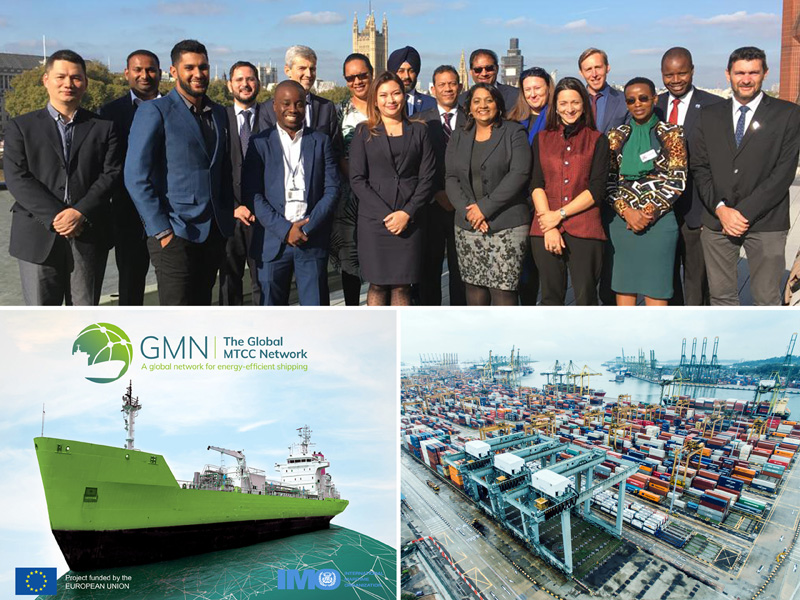Practical efforts to implement ship energy-efficiency measures and promote technology transfer are an integral part of IMO’s initial strategy to reduce greenhouse gas emissions from ships. This is embodied in the global network for energy-efficient shipping under the GMN project, funded by the European Union and run by IMO. Representatives from the five Maritime Technology Cooperation Centres (MTCCs) in the GMN network recently met for their second annual meeting (22-26 October) in London, United Kingdom, on the sidelines of IMO’s Marine Environment Protection Committee (MEPC 73) meeting.
Technical training for MTCC staff on energy efficiency in ship design and operations, port energy management and adaptation to climate change was complemented by a dedicated technology providers’ session - featuring presentations on harnessing wind power, electric and digital solutions, and a vision of how ports of the future might look.
The network of five MTCCS - in Africa, Asia, the Caribbean, Latin America and the Pacific - is being funded to demonstrate and learn lessons from implementing a voluntary pilot data-collection and reporting systems and to provide leadership in promoting ship energy-efficiency technologies and operations, and the reduction of harmful emissions from ships.
The meeting provided an opportunity for MTCC heads to consider priorities for 2020 and to meet with the project’s Global Stakeholders Committee, which brings together technical experts to share ideas and provide long-term strategic guidance.
Meanwhile, Member States meeting in the MEPC confirmed their commitment and support to capacity building projects like the GMN. The MEPC agreed in principle to consider, at its next session, sustainable funding mechanisms for the future, including the possible establishment of a voluntary multi-donor trust fund.
